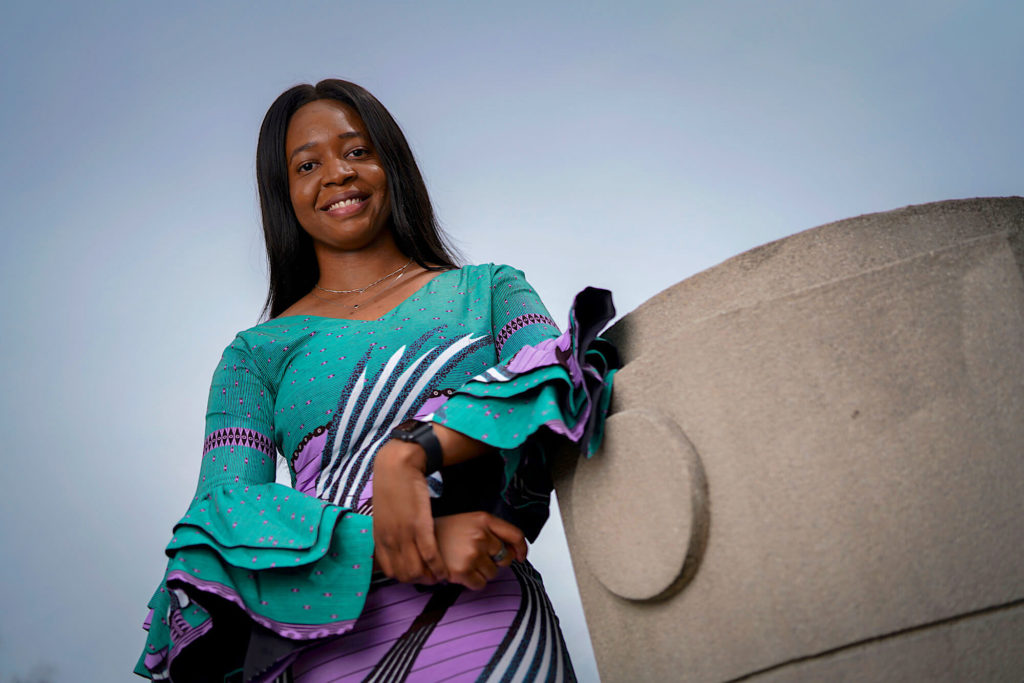When a girl is born in Nigeria, the path for her life is often bleak, by American standards.
Even though Nigerian law dictates that education is free and mandatory for all Nigerian boys and girls between the ages of six and 15, Nigerian Secretary of Education Adamu Hussaini estimated in 2017 that 10.5 million children in the country were either not enrolled or not regularly attending school.
“Illiteracy levels are extremely high and higher for girls because if your parents don’t have enough money they will train the boys, but not the girls,” said University of Tennessee College of Law third-year student Chidimma Nwaneri. “I want to ensure that more girls get educated. I just want more girls to have better futures.”
Nwaneri will graduate from the College of Law this month, having attained a level of education many of her childhood friends may never comprehend. As a girl born in Imo State, Nigeria and raised in Abuja, she was one of the fortunate ones. Her grandparents were committed to educating their children, she said.
“That’s how my mom was able to go to university to law school and become an attorney,” Nwaneri said. “My dad was a politician, and so he also knew how important education is. They always instilled that into all of us that we would get our college degree in the U.S. and get a graduate degree.”
Nwaneri and her siblings have taken seriously the opportunity they’ve been given to study in the United States. All four of them left Nigeria after graduating from high school. Her two brothers have pursued undergraduate and medical degrees, while her sister is working to obtain an MBA. Nwaneri graduated cum laude from Tennessee State University in 2014 with a degree in political science.
After Nwaneri finishes law school and completes her bar exam in July, she plans to return to Nigeria to begin planting seeds that she hopes will make a difference for other girls who want to pursue their education.
“My mom is sponsoring an orphan through high school and I thought – actually if you look at that it’s not that expensive,” she said.
Nwaneri’s long-term goal is to establish a boarding school. But her experience in the College of Law’s Community Economic Development Clinic, in which she worked with a client who was starting a non-profit organization in Kenya, helped Nwaneri establish a short-term goal to first create a non-profit that will subsidize girls’ tuition costs.
“I know how to start a non-profit now, and in general, I just want to help more girls get educated,” she said. “I want to follow in my mom’s footsteps and create a way for more people to provide sponsorships.”
Legal Clinic Professor Eric Amarante helped Nwaneri develop and modify her ideas for creating a non-profit.
“I have little doubt that she will open a school for girls,” Amarante said. “She has realistic goals that are modest and attainable. She certainly has the personality and the dedication to get it done. I think her chances of success are very good.”
But Nwaneri isn’t working under any false illusions. She understands that the road ahead of her will be difficult, and that her successes will be hard won.
“People will raise obstacles, they’ll say ‘who does she think she is coming from a family like her own and coming to tell us how to take care of kids.’ I will face fathers who will say ‘No, you’re not going to send my kid to school,’” she said. “But that’s not going to deter me.”
“I’m still going to do it.”
